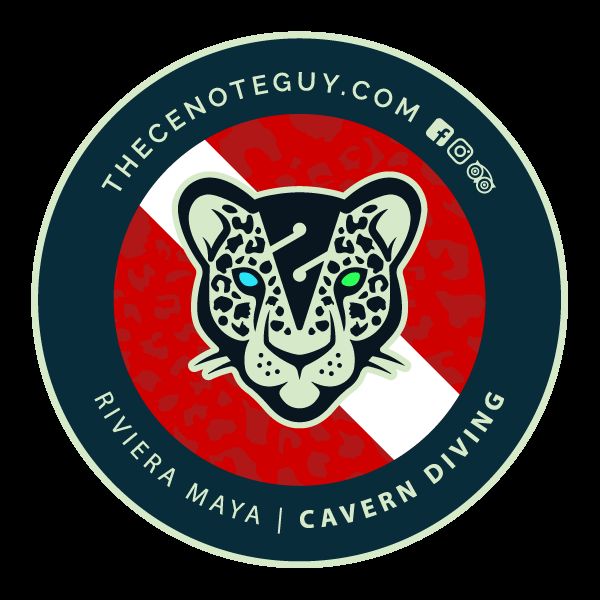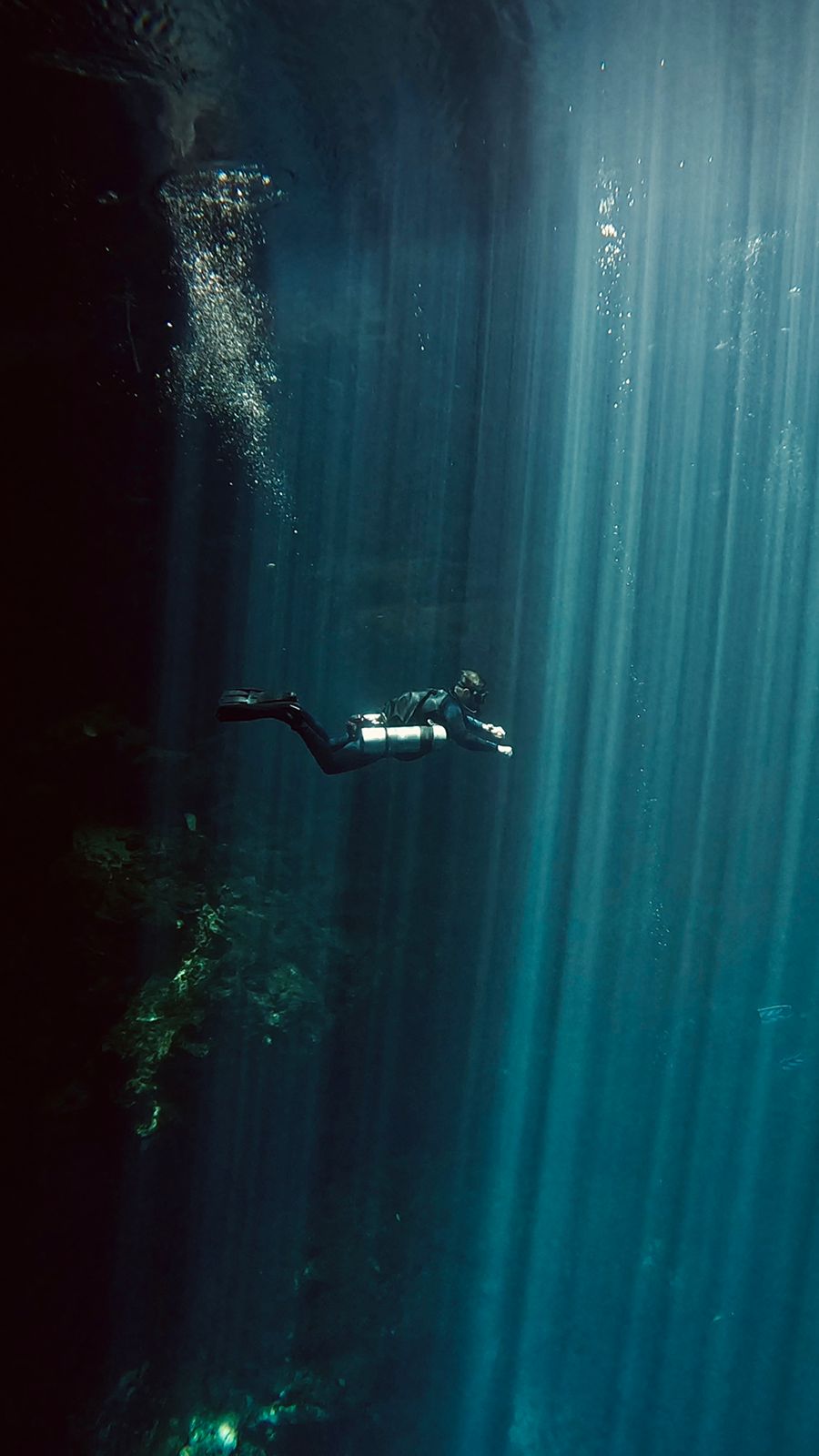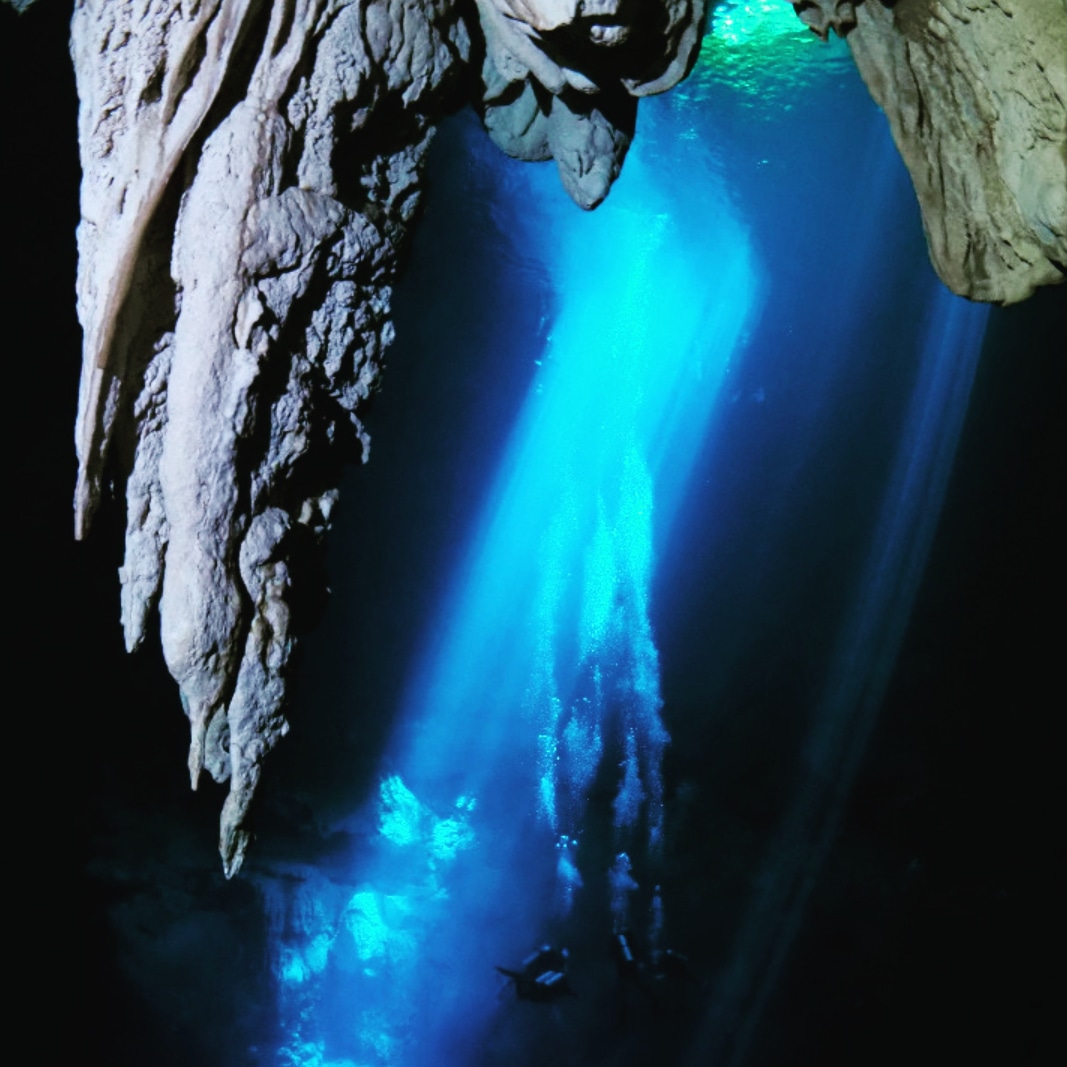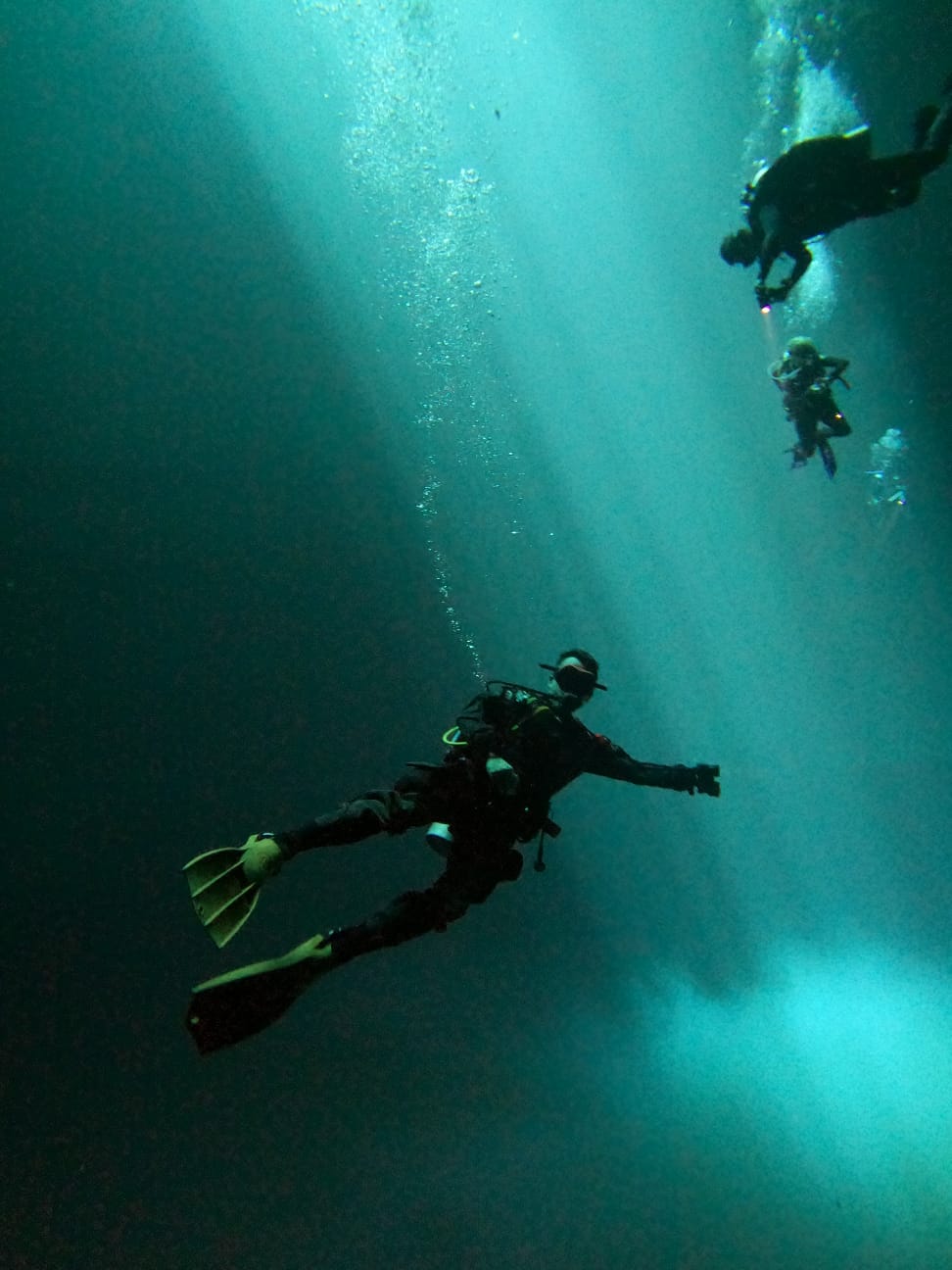News
Diving with… Aydin Dinc, The Cenote Guy, Mexico
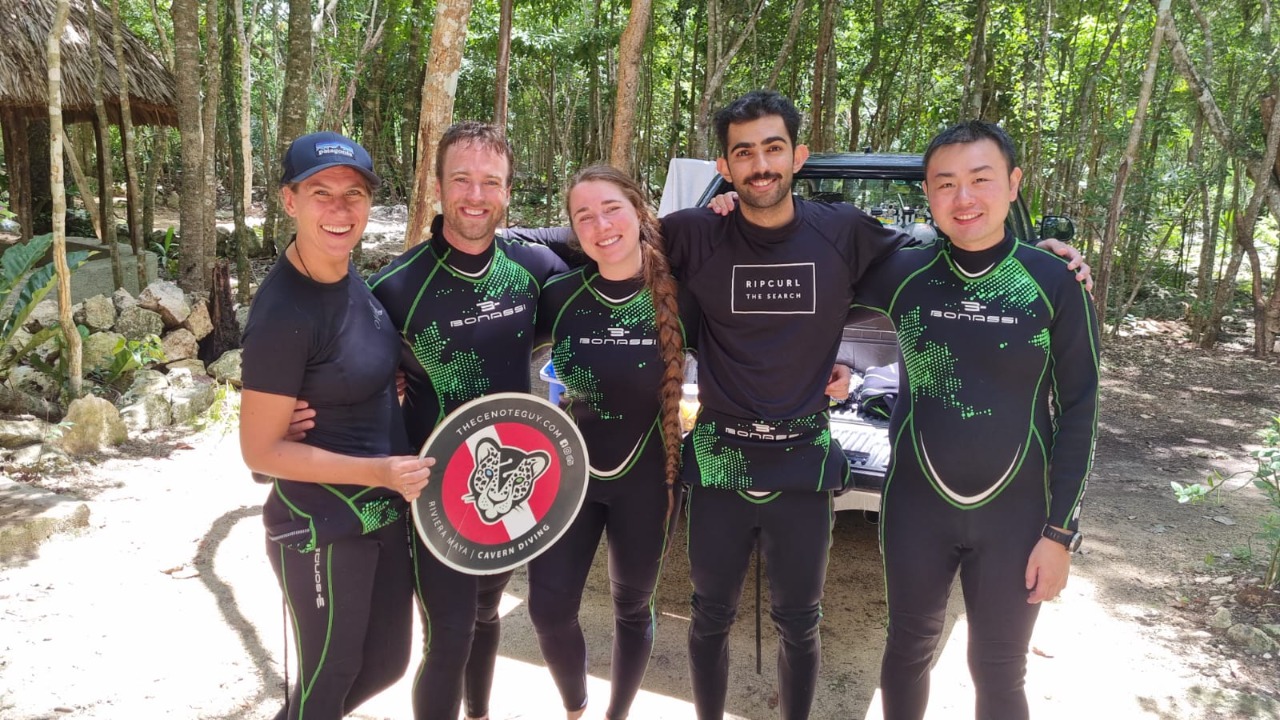
In this ongoing series, we speak to the people who run dive centres, resorts and liveaboards from around the world about their businesses and the diving they have to offer…
My name is Aydin Dinc.
What is the name of your business?
The Cenote Guy – Cenote Diving.
What is your role within the business?
Founder. I’m guiding in the Cenotes and I’m the manager of the business.
How long has the business operated for?
We started in February 2018.
How long have you dived for, and what qualification are you?
Professionally diving since 2017 in Mexico.
Got certified in 1998. I was mostly diving for fun during vacations in the Mediterranean.
2017 MSDT Padi instructor
2017 TDI full cave Diver
What is your favorite type of diving?
For sure, cavern diving. I also love Ocean diving, the Big Blue and marine life.
Cavern and Cave is more like a living style, a daily ritual, a spiritual thought process for me.
Diving in caverns in very addictive. I enjoy the caverns on a daily basis and practice cave diving on my days off.
If you could tell people one thing about your business (or maybe more!) to make them want to visit you, what would it be?
We are specialized in cavern diving and that´s what make our strength. The dives are tailormade taking into consideration the diver’s experience and skills. We are not doing any courses; we are not doing Ocean dives. We want to give you the best in cenote diving. Fully concentrating on GUIDING. Safety being our biggest focus. And, word of mouth, that’s how our customers choose us. That’s a niche we have chosen because it is not “regular diving.” It’s special, it’s Cenote Diving.
What is your favourite dive in your location and why?
Little Brother is by far the most enchanting dive of all. My personal favorite. Incredibly beautiful and with the most features you can have in Cenote diving. I am proud to guide in this place where you have the feeling of being on another planet, where the words are missing when trying to describe the experience.
What types of diving are available in your location?
We only do cavern diving. So, the main parameter is how much you get inside the overhead environment. I personally categorise them as:
Semi open water dives: The open water surface is wide and easy to spot, like Kukulkan, little brother, eden, Barbie line, carwash, casa Cenote etc.
Penetration dives: You have this real feeling of getting under the ground and tunnels, adventure lovers are welcome! Tajmaha, Batcave, dreamgate etc.
Open water dives: Technically open water dives, but all around 30 meters / 90 feet of depth, for advanced divers. Like Angelita, zapot , Kinha etc.
What do you find most rewarding about your current role?
I’m into guiding and sharing my passion with my fellow divers is the best reward. It’s amazing how diving creates bonds after having done a Cenote dive. I have seen people crying after the dives, being moved. It’s impacting, calming and so out of this world. It’s a spiritual calling. And believe me, to be someone witnessing the emotion and in a way being the one that is facilitating such moments, is the greatest reward. Back in time, my first cenote dives were the most exciting things I have ever done in my life. And I know that it’s the case for the majority of our divers. A life changing experience.
What is your favorite underwater creature?
My favourite underwater creatures, that we are lucky to spot in a couple of cenotes, are the crocodiles. They are laying on the rocks and watching us calmly. They are the real inhabitants of the cenotes. They are small and very inoffensive. Always a nice encounter for our divers.
As a center what is the biggest problem you face at the moment?
The fast growth of the region is somehow menacing our beautiful cenotes. We would like to keep this activity as an off the beaten path one!
Is your center involved in any environmental work?
We care about the environment and we are trying to reduce our footprint. No plastic cups and bags, no chemicals in the cenotes. We are helping and working with the local Mayan community to minimize our waste.
Are there any exciting changes / developments coming up in the near future?
We are very happy and proud to have very competitive pricing. Having a high demand, we are doing way better in our offer for the people willing to have a very private experience to celebrate birthdays, honeymoons and special days in the cenotes. As our team of instructors is getting bigger, it’s easier to separate private divers from the other divers. We are into diversifying our offer to match with the demand. Keeping the quality and the safety as our main concern.
How do you see the SCUBA / Freediving / snorkeling industry overall? What changes would you make?
From what we can see in the Riviera Maya, tourism activity is increasing. This region is the pearl of Mexican tourism. Radical measures should be taken to allow this blooming to be regulated in order to respect the nature. Unfortunately, the educative ‘pink’ approach is not working anymore – my humble opinion.
From the Airport on arrival to the departure day, the tourist should be hammered with preventive (and punitive) measures to make sure the preservation and protection of the environment is ensured.
Finally, what would you say to our visitors to promote the diving you have to offer?
Cenote diving is a different way of diving. The open water certification is more than enough to enjoy this very amazing adventure. We have seen a lot of divers never going back to “normal” ocean diving after having experienced Cenote Diving 😊
Where can our visitors find out more about your business?
WhatsApp messages only: +52 984 100 78 65
Facebook: www.facebook.com/thecenoteguy
Instagram: www.instagram.com/thecenoteguy
Blogs
Northern Red Sea Reefs and Wrecks Trip Report, Part 2: Wall to Wall Wrecks
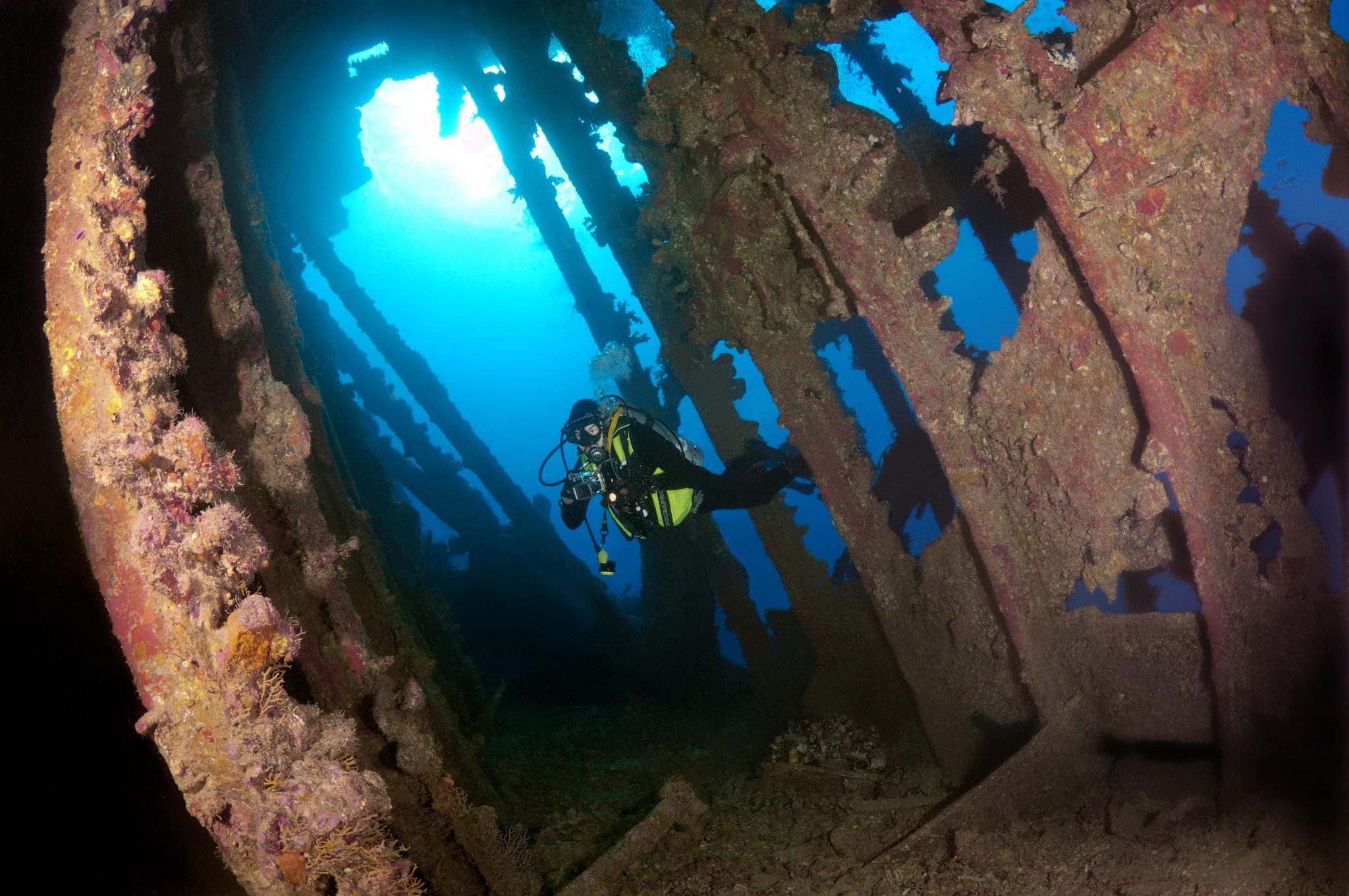
Jake Davies boards Ghazala Explorer for an unforgettable Red Sea diving experience…
The second day’s diving was a day full of wreck diving at Abu Nuhas, which included the Chrisoula K, Carnatic, and Ghiannis D. The first dive of the day was onto the Chrisoula K, also known as the wreck of tiles. The 98m vessel remains largely intact where she was loaded with tiles which can be seen throughout the hold. The stern sits at 26m and the bow just below the surface. One of the highlights of the wreck is heading inside and seeing the workroom where the machinery used for cutting the tiles are perfectly intact. The bow provided some relaxing scenery as the bright sunlight highlighted the colours of the soft coral reef and the many reef fish.
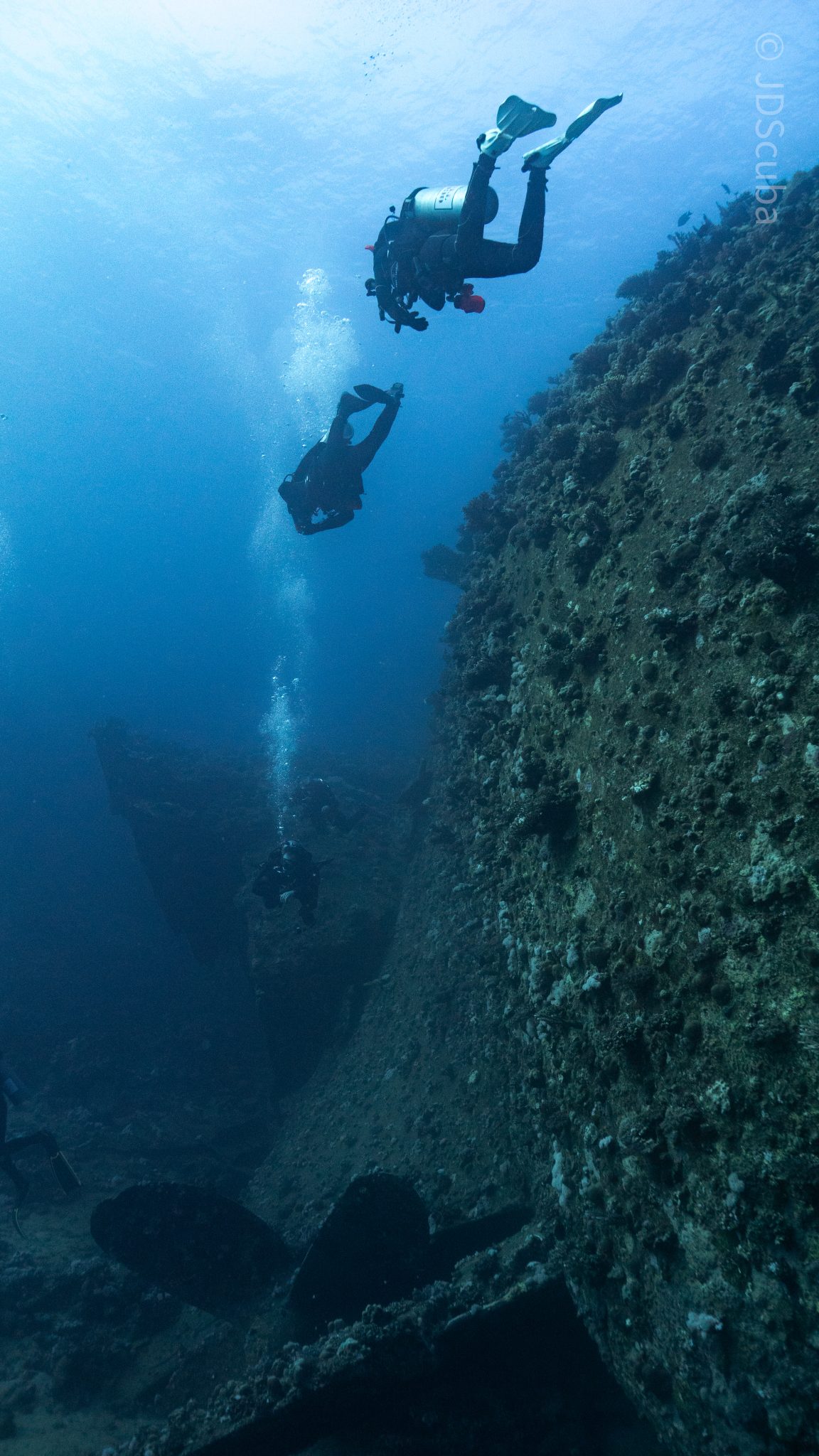
Following breakfast, we then headed to the next wreck, which was the Carnatic. The Carnatic is an 89.9m sail steamer vessel that was built in Britain back in 1862. She ran aground on the reef back in 1869 and remains at 27m. At the time, she was carrying a range of items, including 40,000 sterling in gold. An impressive wreck where much of the superstructure remains, and the two large masts lay on the seafloor. The wooden ribs of the hull provide structures for lots of soft corals, and into the stern section, the light beams through, bouncing off the large shoals of glass fish that can be found using the structure as shelter from the larger predators that are found outside of the wreck.
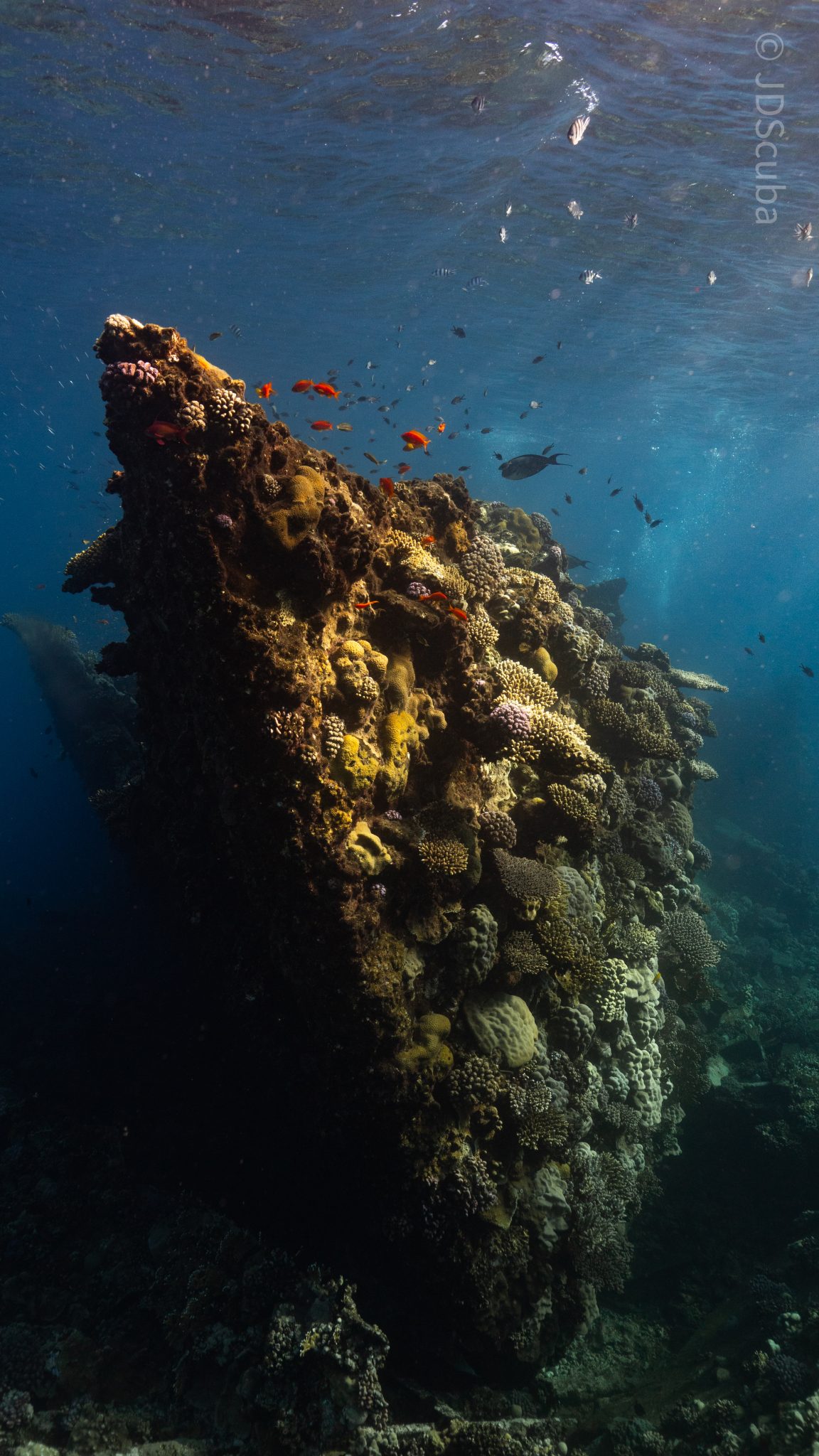
The final wreck at Abu Nuhas was the Ghiannis D, originally called ‘Shoyo Maru,’ which was 99.5m long and built in Japan back in 1969 before becoming a Greek-registered cargo ship in 1980. The ship then ran aground on the reef on April 19th, 1983, and now sits at the bottom at a depth of 27m. Heading down the line, the stern of the ship remains in good condition compared to the rest of the hull. The highlight of the wreck, though, is heading into the stern section and down the flights of stairs to enter the engine room, which remains in good condition and is definitely worth exploring. After exploring the interior section of the ship, we then headed over to see the rest of the superstructure, where it’s particularly interesting to see the large table corals that have grown at the bow relatively quickly considering the date the ship sank. After surfacing and enjoying some afternoon snacks, we made sure everything was strapped down and secured as we would be heading north and crossing the Gulf of Suez, where the winds were still creating plenty of chop.
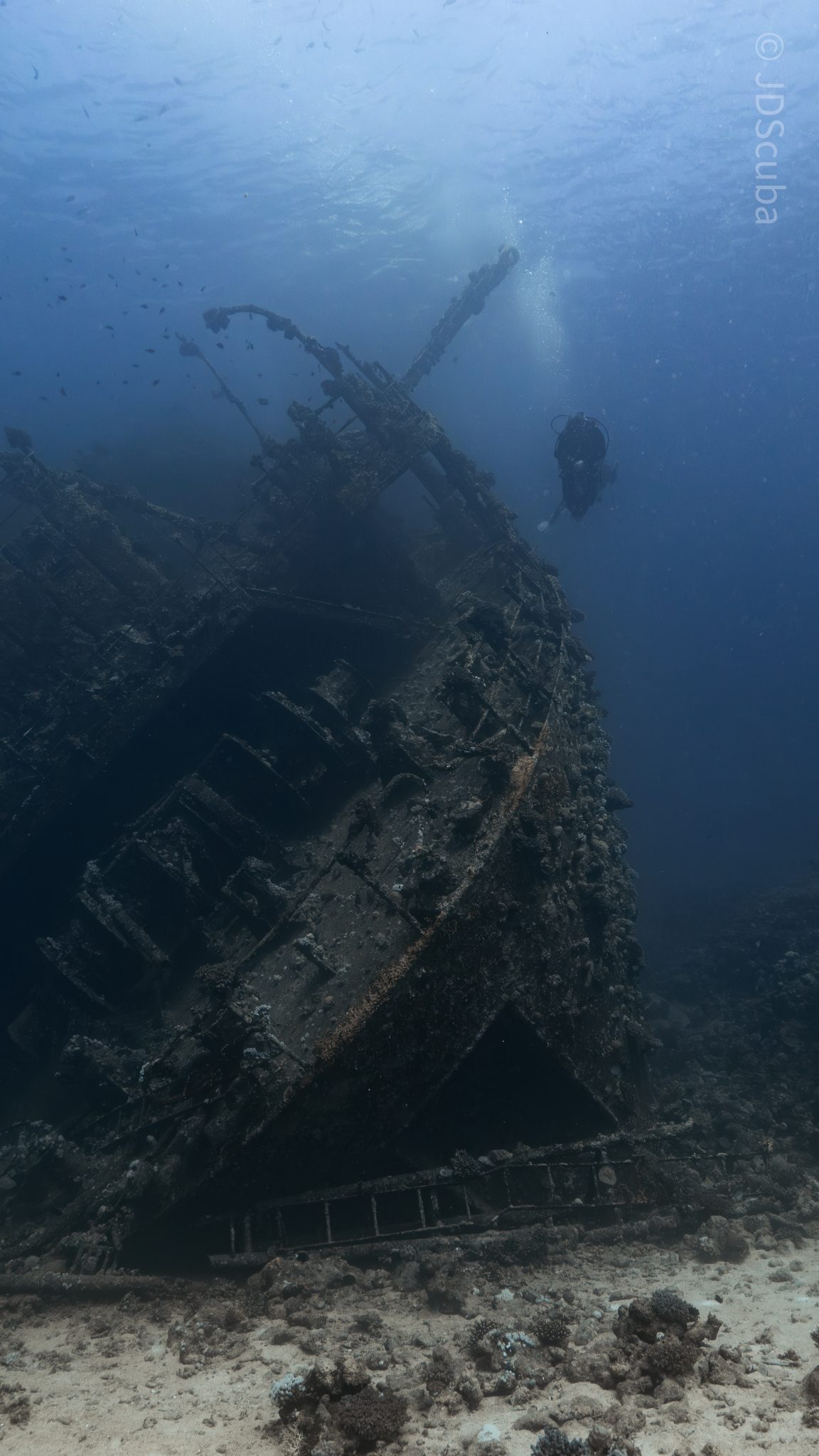
The next morning, it was a short hop to Ras Mohammed Nature Reserve for the next couple of days of diving. The 6am wake-up call came along with the briefing for the first site we would be diving, which was Shark & Yolanda. The low current conditions allowed us to start the dive at Anemone City, where we would drift along the steep, coral-filled wall. These dives involved drifts, as mooring in Ras Mohammed wasn’t allowed to protect the reefs. As a dive site, Shark & Yolanda is well-known and historically had a lot of sharks, but unfortunately not so many in recent years, especially not so early in the season. However, there was always a chance when looking out into the blue.
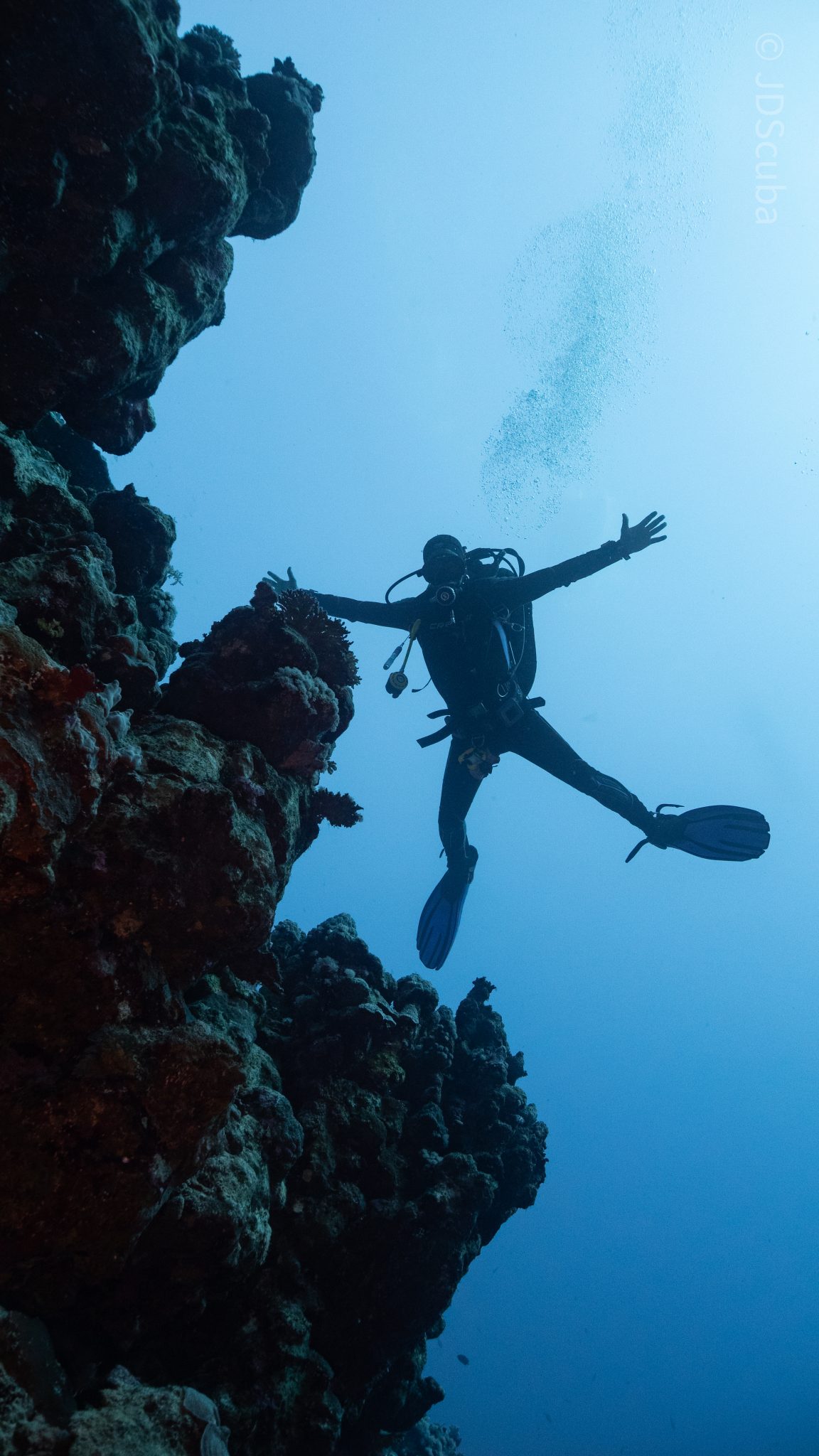
The gentle drift took us along the steep walls of the site, with plenty of anemone fish to be seen and a huge variety of corals. It wasn’t long into the dive before we were accompanied by a hawksbill turtle, who drifted with us between the two atolls before parting ways. Between the two reefs, the shallow patch with parts of coral heads surrounded by sand provided the chance to see a few blue-spotted stingrays that were mainly resting underneath the corals and are always a pleasure to see. With this being the morning dive, the early sunlight lit up the walls, providing tranquil moments. Looking out into the blue, there was very little to be seen, but a small shoal of batfish shimmering underneath the sunlight was a moment to capture as we watched them swim by as they watched us.
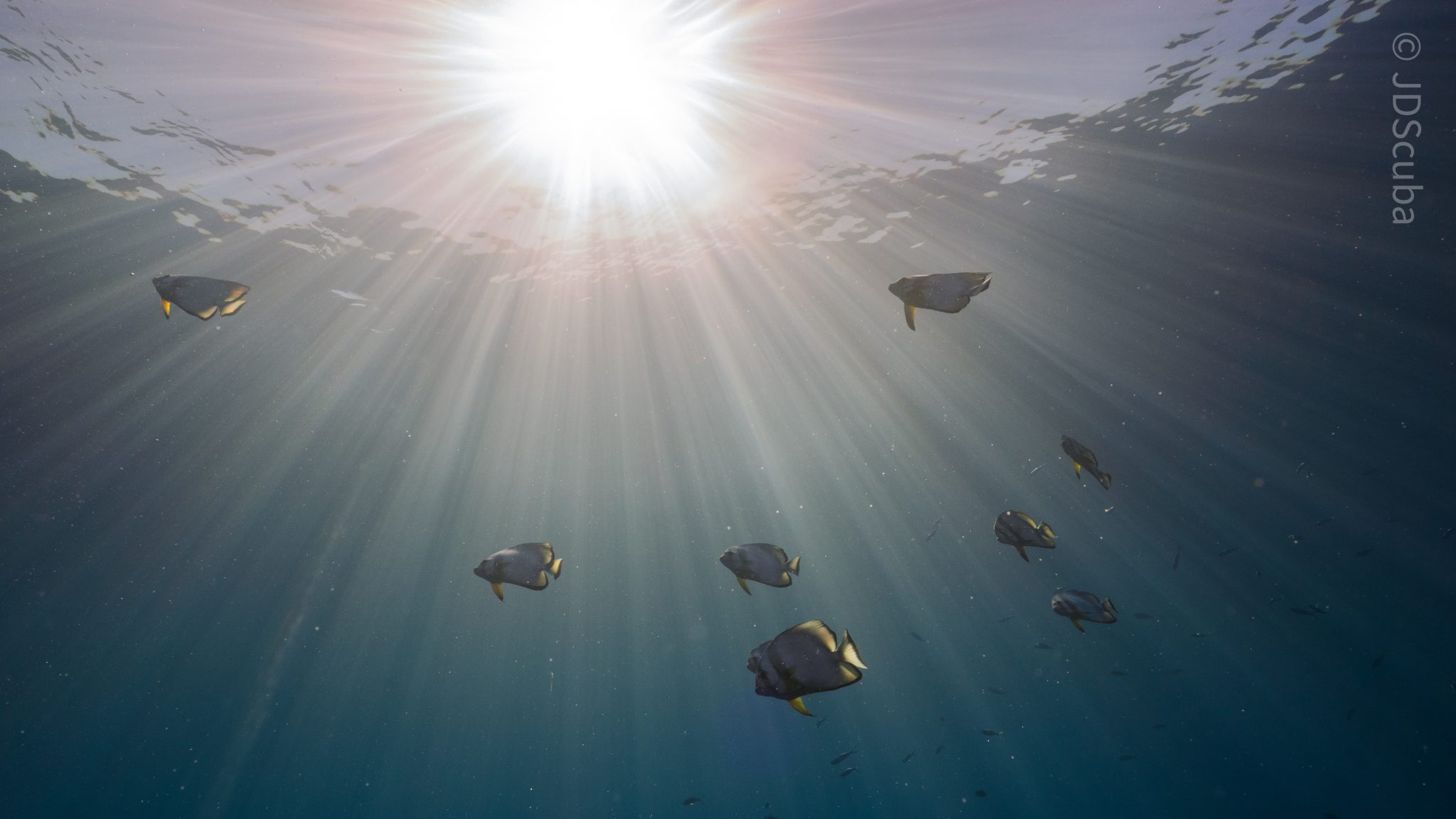
Towards the end of the dive, we stopped at the wreck of the Jolanda where the seafloor was scattered with toilets from the containers it was carrying. This provided a unique site to make a safety stop, which was also accompanied by a large barracuda slowly swimming by, along with a hawksbill turtle calmly swimming over the reef as the sun rays danced in the distance.
For the next dive, we headed north to the Strait of Tiran to explore the reefs situated between Tiran Island and Sharm El Sheik, which were named after the British divers who had found them. We started on Jackson before heading to Gordons Reef, where we also did the night dive. All the atolls at these sites provided stunning, bustling coral reefs close to the surface and steep walls to swim along, which always provided the opportunity to keep an eye out for some of the larger species that can be seen in the blue. Midwater around Jackson Reef was filled with red-toothed triggerfish and shoals of banner fish, which at times were so dense that you couldn’t see into the blue. Moments went by peacefully as we enjoyed the slow drift above the reef, watching these shoals swim around under the mid-afternoon sun.
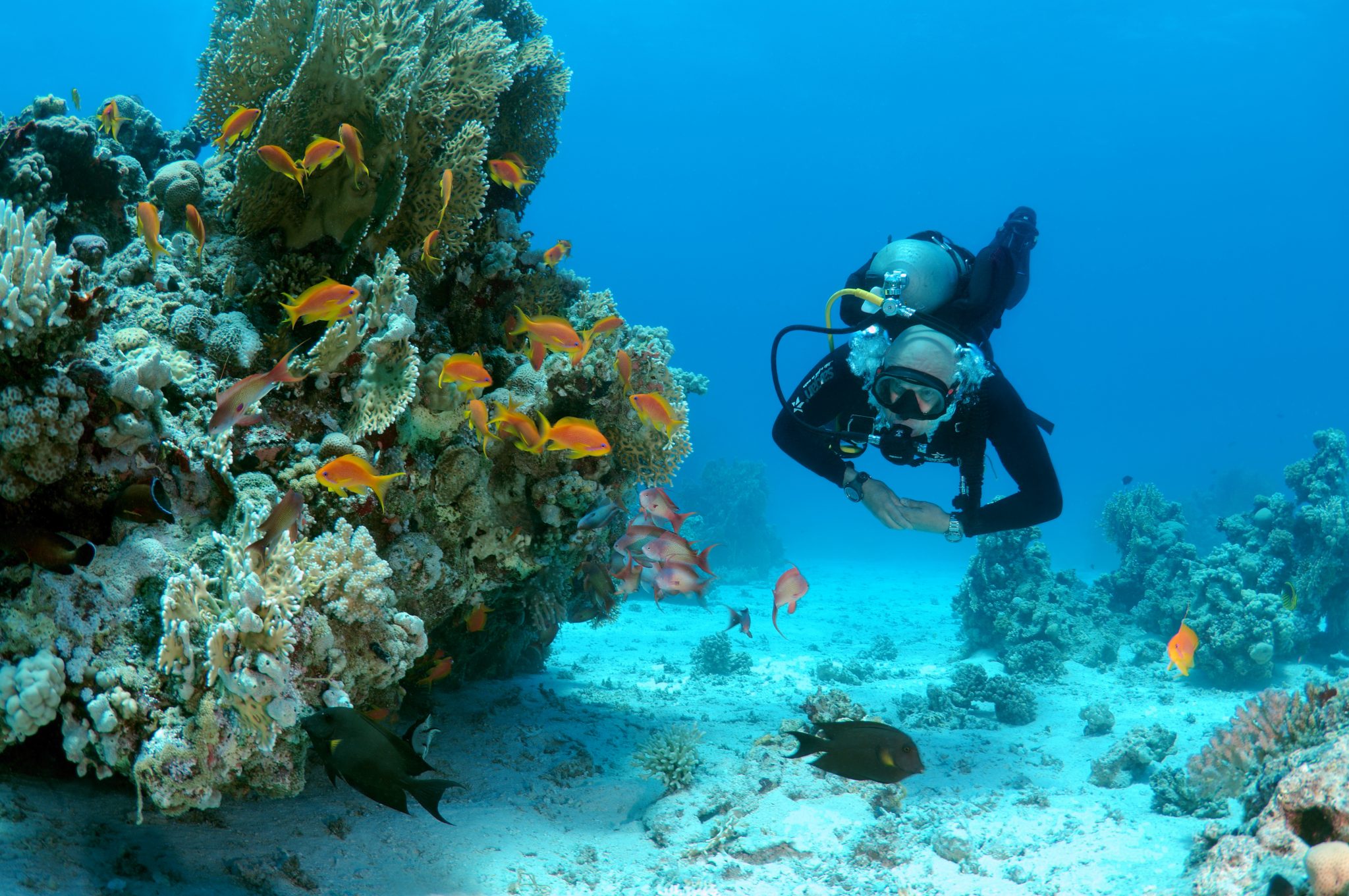
The night dive at Gordon’s Reef was mainly among the stacks of corals surrounded by sand, which was great to explore under the darkness. After some time circling the corals, we came across what we were really hoping to find, and that was an octopus hunting on the reef. We spent the majority of the dive just watching it crawl among the reef, blending into its changing surroundings through changes in colour and skin texture. It’s always so fascinating and captivating to watch these incredibly intelligent animals, in awe of their ability to carry out these physical changes to perfectly blend into the reef. Before we knew it, it was time to head back to the boat to enjoy a well-deserved tasty dinner prepared by the talented chefs onboard.
Check in for the 3rd and final part of this series from Jake tomorrow!
To find out more about the Northern Red Sea reef and wrecks itineraries aboard Ghazala Explorer, or to book, contact Scuba Travel now:
Email: dive@scubatravel.com
Tel: +44 (0)1483 411590
Photos: Jake Davies / Avalon.Red
Marine Life & Conservation
Double Bubble for Basking Sharks

 The Shark Trust is excited to announce that, for two more days only, all donations, large or small, will be doubled in the Big Give Green Match Fund!
The Shark Trust is excited to announce that, for two more days only, all donations, large or small, will be doubled in the Big Give Green Match Fund!
Donate to Basking in Nature: Sighting Giants
The Shark Trust is hoping to raise £10k which will be doubled to £20k. This will go towards Basking in Nature: Sighting Giants. And they need YOUR help to reach they’re goal.
The Shark Trust’s citizen science project is to monitor and assess basking sharks through sightings; encouraging data collection, community engagement, and promoting nature accessibility. This initiative aims to enhance health and wellbeing by fostering a deeper connection with British Sharks.
Campaign Aims
- Increase citizen science reporting of Basking Sharks and other shark sightings to help inform shark and ray conservation.
- Provide educational talks about the diverse range of sharks and rays in British waters and accessible identification guides!
- Create engaging and fun information panels on how to ID the amazing sharks and rays we have on our doorstep! These can be used on coastal paths around the Southwest. With activities and information on how you can make a difference for sharks and rays!
- Promote mental wellbeing through increasing time in nature and discovering the wonders beneath the waves!
Donate, and double your impact. Click Here
-

 News3 months ago
News3 months agoHone your underwater photography skills with Alphamarine Photography at Red Sea Diving Safari in March
-

 News3 months ago
News3 months agoCapturing Critters in Lembeh Underwater Photography Workshop 2024: Event Roundup
-

 Marine Life & Conservation Blogs2 months ago
Marine Life & Conservation Blogs2 months agoCreature Feature: Swell Sharks
-

 Blogs2 months ago
Blogs2 months agoMurex Resorts: Passport to Paradise!
-

 Blogs2 months ago
Blogs2 months agoDiver Discovering Whale Skeletons Beneath Ice Judged World’s Best Underwater Photograph
-

 Gear Reviews2 months ago
Gear Reviews2 months agoGear Review: Oceanic+ Dive Housing for iPhone
-

 Marine Life & Conservation2 months ago
Marine Life & Conservation2 months agoSave the Manatee Club launches brand new webcams at Silver Springs State Park, Florida
-

 News3 months ago
News3 months agoWorld’s Best Underwater Photographers Unveil Breathtaking Images at World Shootout 2023


